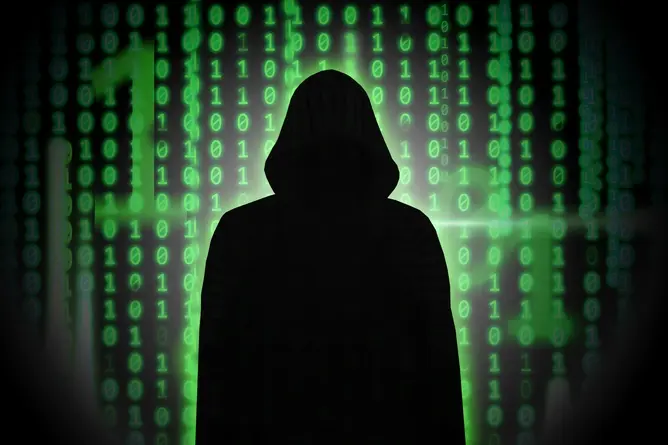- cross-posted to:
- science@mander.xyz

If buying is not owning, copying is not stealing. Simple as that.

I can’t find it now, but there was that one text post that went something like “1. Copying a movie costs the studio money, 2. Download a movie, 3. Make 1000 copies, 4. Studio goes bankrupt”

I saw one where it went:
- Publish a copyrighted work
- Sell it for 10 bucks
- Have a friend pirate it 100 million times
- Declare bankruptcy
- Have the friend delete his copies
- You’re a billionaire now

Trolls ripped me a new one for saying that. I hope they wont do the same to you. But yes I agree.

If your business model needs undercover advocates to fake grassroots legitimacy you may have a problem.

Whos going to tell them?

Bankruptcy court?

I think bribing politicians to make it illegal to own anything is more likely.

But stealing is not owning so QED

Whatever you need to tell yourself to sleep at night. It’s definitely stealing. This is a piracy community. Don’t feign moral superiority. They offer a product, you don’t want to buy the product so you find it for free elsewhere. A digital file that you experience for a cost is no different than a book you buy from a store, regardless of the state of ownership after the fact. And regardless if it’s a locally published author or a multi billion dollar studio, there’s a cost of entry. Semantics is all you’re arguing, not the legitimacy of piracy, when you share that copypasta.

“Theft” has a legal definition that at least in my jurisdiction is not met by downloading copyrighted materials. So, no, copying is not stealing.

Actually, even if you are an EU citizen, downloading copywritten material for free is very much considered theft. Ever read those FBI or Interpol statements at the beginning of films?

You are wrong. You are talking about copyright infringement, which is a civil matter and not a criminal one. That means the party whose rights have been infringed must prove that and sue you. But you won’t go to jail if convicted, you’ll have to pay damages. That’s why the Netherlands, for example, used to be safe for torrenting. It wasn’t legal, but copyright holders did not have the right to get account details from providers for IP addresses that were caught sharing content (sharing, not downloading) and thus had no one to sue. If it were a criminal matter, the state would be after you and they have a lot more rights.

In this case, the phrase’s become more popular because people buy digital goods and, due to business shenanigans, they lose access to it, like buying a digital copy of a movie, “owning it”, then no longer being able to access it because Sony couldn’t be arsed to get the rights sorted out.
There’s also the numerous situations where you can’t legally own media, simply because it’s not up for sale, like the vast majority of content on streaming sites. There’s no way to own and consume some media except through the provider. It’s still illegal, it’s still an unauthorized copy, but in this case, it’s the only way to “own” something.

Despite crappy licensing agreements and the tenuous relationship between consumers and ownership of a thing, finding a way to circumvent paying for a thing that is for sale in one form or another, is theft.

Look man, I get that piracy isnt an ethically clean solution, but the current state of legal digital media is nowhere near ethically clean either, and I’m far more likely to root for a person than I am for a corporation. Especially since its because of corporations that the digital ownership sphere is so fucked

I will gladly take a position of moral superiority, because copyright has evolved from a very limited monopoly, intended to encourage creativity while balancing public access, into a licence for corporations to seek rent.
So, call it stealing if you like, I will sleep well tonight regardless.

You’re taking a thing that costs money, for free. I don’t see how it’s anything other than stealing.
If you go to a theme park, and they want $20 for you to enter, and you decide you don’t want to pay, you’ll be in violation of their rules. Those that did pay will leave the park at the end of the day with a great experience, but with no presumption of ownership of the park. This is analogous to piracy by copying a movie. You didn’t want to pay the entrance fee, so you found a way to have the same enjoyment for free. The people that paid for their media, however shitty the licensing agreement is, received the agreed upon service with no presumption of ownership.
I’m not here to defend streaming services or crappy licensing deals, but to pretend that it’s not stealing, gaslighting everyone here into following your train of thought, is the definition of unearned moral superiority. You’re not entitled to free media.

The only theft going on is the ongoing theft from the public domain, due to corruption of copyright law by special interests enabled by law for hire. Your analogy is irrelevant as the marginal cost of operating a park for an extra visitor is not zero.

It’s like refusing to pay the $20 park entrance fee and then making your own copy of the park in your backyard. Is that stealing $20 from the park?

I mean it’s still possibly copyright and/or trademark infringement, but…

Cocksucking cabin is over there --> https://www.motionpictures.org/

Those Ads at the beginning of legitimate copies of DVDS and movies, really bugged me, like why are you annoying the people who actually bought the product!? Also the people downloading stuff online seemed cool in those videos so I think the ads had the opposite effect a lot of the time.

Plus they come off like those ridiculous anti-drug ads that make it seem like a single puff of weed will make you shoot your friend in the face and run your dog over. They’re just way over the top to the point that they’re comical and easy to mock.

We are cool get in it with us chud.
- intensely_human ( @intensely_human@lemm.ee ) English3•1 year ago
This is Chad. Chad downloaded the movie from a pirate site, then smoked a joint and got a blowjob. Don’t be like Chad.

I don’t really understand the gender difference thing, because I would think that in general it comes down to understanding what “ownership” is and that it has been taken from us, replaced with “licensing” where we have to buy the same movie every 10 years on a new format, and now that streaming is THE format, companies have made The Producers real, where they can make a whole movie, shitcan it, and get a tax break. We’re dealing with items we’ve paid for being removed from our digital storage boxes, because the “rights ran out.” It’s wild, because it used to be that you bought a movie and it didn’t matter that the rights ran out you could still watch your fucking movie in your own home. Same for old video games. If you have old copies of Grand Theft Auto, you can still listen to the great soundtrack, because they hadn’t stripped the music they lost licensing for out of the new copies.
I mean, going back to when the music companies were suing music fans for downloading music, the RIAA sued Limewire for so much that if the max payout was given to every rightsholder for all the piracy going on, that it would be a bill larger than the amount of money that actually existed.[1]
When the fines for all piracy that exists would be bigger than the amount of money that exists, its clear that the system is fucking broken and has been.
Nobody respects copyright, and that started when Disney fucked us all over with the Mickey Mouse Protection Act in the 1990’s.
The rightsholders did this to themselves by making it increasingly draconian.
When cops are playing copyrighted music when they’re being filmed so people can’t post it online without it being auto-removed for having copyrighted music in it, things are flat out fucked and everybody knows it.
It’s akin to living the end stages of the Soviet Union with Hypernormalization. Everything is totally fucked, but everyone is running around trying to pretend that nothing has changed and everything is fine.
For citizens who get nothing but working themselves to death and taxes that do nothing for them, piracy is one of those small “fuck you”'s that we can give to the rich.
“The Recording Industry Association of America (RIAA) estimates that filesharing website LimeWire owes it over $72 trillion dollars (£46 trillion) in damages. … Given that the combined wealth of the entire planet is around $60 trillion (£38 trillion), the RIAA likely has no hope of securing this in damages, but believe this is what it is owed, reports Computerworld.com.” ↩︎

Indeed. Piracy is good because it is preservation

We only started pirating after Amazon refused to let us play movies we paid for because our hardware was too old for their DRM. It was a 2014 PC made of recycled parts. At the time, it was less than 10 years old. We pirated the same movie and realized it was easier to find, higher quality, and surprise, surprise, capable of playing on a PC we kept out of the landfill.
When I see anti piracy measures that punish people that don’t pirate, such as massive performance hits or privacy violating features, it makes me want to pirate more.
- intensely_human ( @intensely_human@lemm.ee ) English1•1 year ago
I rented a car to do Uber with while I apply for jobs, and the car is an electric. They had no gas powered cars available.
It is such a pain in the ass. I’ve only had it for a couple of days, but so far I’ve spent 2.5 hours today waiting for charge, and about 5 hours driving passengers.
I’m ready. I want to download a car. Just need someone to point me in the right direction.

It poses a significant challenge to creative economies worldwide, costing industries billions annually.
Other studies found, that piracy actually increases sales, offsetting the (always oversestimated) loss of revenue.
So, no, that’s a lie.

The real challenge to creative economies are the billionaires sucking all the profit from album sales or deleting television shows from the face of the earth for a tax writeoff.

Agreed. I copied that exact quote to see if someone called it out already. Also this one:
educational messages tend to try and educate the consumer on the moral and economic damage of piracy.
Citation fucking needed.
As an anecdotal example, I pay for Netflix, Spotify, Prime, and Kindle Unlimited (and CBC Gem partly through taxes), I regularly buy videogames and ebooks (and pay for a library with taxes), and I buy phone apps. I’m paying as much as I comfortably can for media in various forms.
I also pirate TV/film content, books, games, apps, operating systems, etc. A lot.
But about half the TV/film piracy is content I have already paid to get streaming access to simply because it’s easier to pirate than figure out which service it’s on, and the other half is mostly freely available on YouTube at garbage quality.
The content industry, net everything, is getting all the cash out of me that they ever will. Piracy has 0 net effect on my media spending; I’d just consume different content, content at a lower quality, spend more time on Where To Stream, and get books from the library a bit more often.

Piracy is a service issue. Give people the option to stream all of their media with an option to download for the nerds, and sell it at a reasonable price, you will hurt piracy. Splintering all media up into a thousand streaming services and implementing black box licensing agreements is what pushes people to piracy.

Also, the number of seeds are a good measure for popularity of media that one might not had in their radar at all. Meanwhile, platforms try to push all sort of content only because they produced it, recommendation algorithms are needed (and insufficient), because there a huge load of crap being produced at such a high rate…

People who bought the movie seeing anti-piracy ads: 🤡
People who pirated the movie not seeing anti-piracy ads because they’ve been cut out: 😎

You wouldn’t shoot a policeman. And then steal his helmet. You wouldn’t go to the toilet in his helmet. And then send it to the policeman’s grieving widow. And then STEAL IT AGAIN!

Reference season 2 episode 3 https://m.youtube.com/watch?v=xuxO6CZptck

Username checks out and I have officially read all your comments in Richard Ayoade’s voice.

“oh, right. If I had just pirated this my content wouldn’t be delayed by these stupid piracy warnings.”

Sony lost any moral high ground when they put a commercial for a Toyota on my Blu-ray of 1408 which retailed for $35 at the time. And of course, you can’t skip it.

That reminded me about those long, unskippable previews on DVDs… extremely annoying. VLC at least could skip straight to the disc menu though, pretty much ditched Windows Media Player and PowerDVD after that.
Now here I am on the high seas, with all my media consumption devices running some flavor of Linux. Have not had a single annoyance since.

I’ve been sailing the high seas since BBS’s reigned supreme. Btw, there are telnet BBS’s.

I remember the commercials “Piracy is not a victimless crime” pissed me off so hard, and drove me to download much more than I otherwise would have

I have two hypotheses to explain the gender gap.
1. The effectiveness of the threats is inversely proportional to the tech expertise of the person being threatened. And your typical woman knows less about files, piracy, internet and the likes than your typical man.
If this hypothesis is true, then splitting cohorts based on tech expertise should show a smaller gap between men and women.
2. Society trains women and men to react differently to threat. In simple words: men are expected by society to fight back, while women are expected to passively accept the threat and play along.
If this hypothesis is true, you should be able to see and measure the different answers in other situations that don’t involve piracy.
With that said, “perhaps” those anti-piracy messages would be more effective if they didn’t rely on bullshit, to the point that sounds a lot like “I expect the viewers of this message to be both tech-illiterate and gullible”.

I’m suspicious of the idea that women respond favorably to those notices.
“You wouldn’t download a car…”
Women: Gee, officer, that’s a good point.Riiiiiiight…

Yeah, proper cohort attribution seems to be a little lacking by this data analyst. I’d say gender bias has already occured before your specific sample point… bro

They work on my mother, but she has the kind of faith in the system I honestly envy. It seems like a much more tranquil existence.
This is the same woman who thinks the Judge Rotenburg center must not be that bad, because otherwise it would have already been closed down. She just…can’t imagine a regulatory failure that big actually happening.

“what’s the Judge Rotenburg Center?” looks it up “Jesus”

No shit. How have they not figured this out 15 years ago when every DVD had non-skippable anti-piracy messages?

The conclusion doesn’t follow the study.
Threatening messages decrease piracy by women by over 50%, while increasing piracy by men by 18%.
So, unless there are three times as many male pirates as female, those messages are effective at reducing piracy.

I would suspect there are many times more male pirates than female.

Why?

Because of the technical skill required for pirating and the tech industry being mostly men currently.

Result of gender stereotypes affecting the behaviour of female and male children, so male children grow up to be more encouraged to learn about technology and engage in risk taking behaviour.
Also inclination to risk taking behaviour is much higher in biological men than biological women, which would also give a potential reason why this advertisment works on women but not on men.
As always these attributions only represent the average of the women and men populations as a whole. Ofc. there is risk averse men and tech savvy women.

The word cis or cisgender is right there my friend. Trans people are still biological, after all.

If I put the over/under at 10x male pirate to female, are you taking the under?

So, unless there are three times as many male pirates as female, those messages are effective at reducing piracy.
That would not surprise me at all.

It’s actually advertising. “Ha, that’s right, I can just clone the files.”


